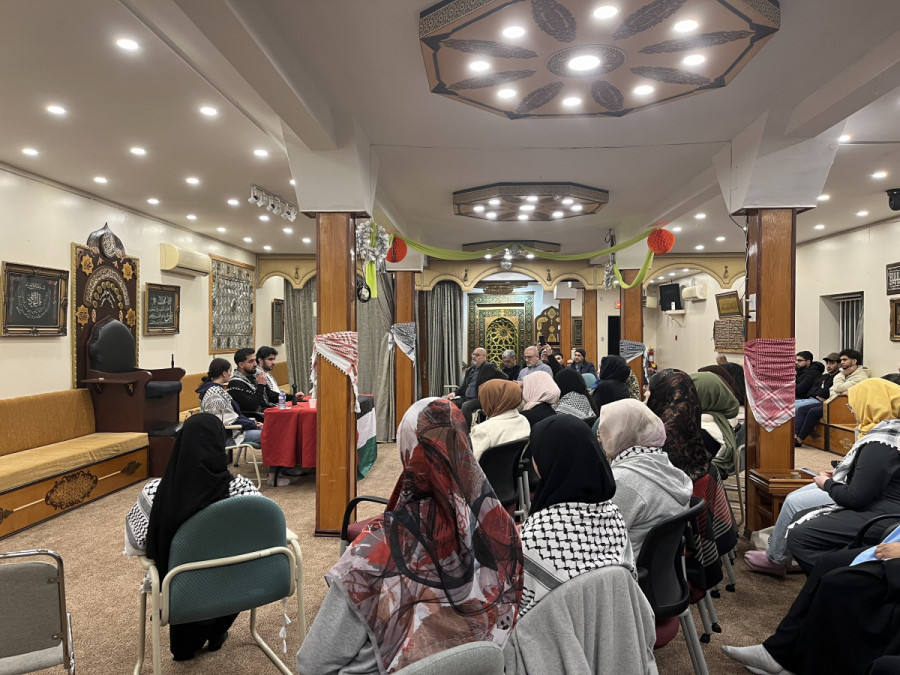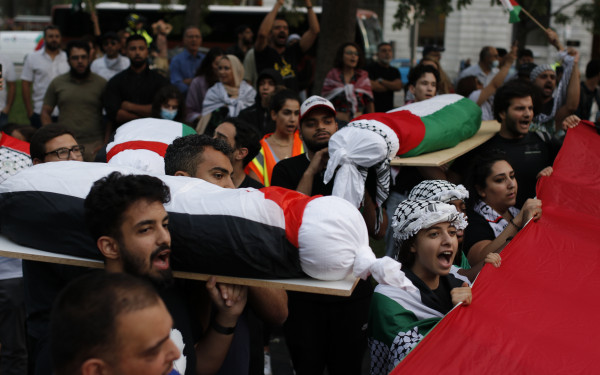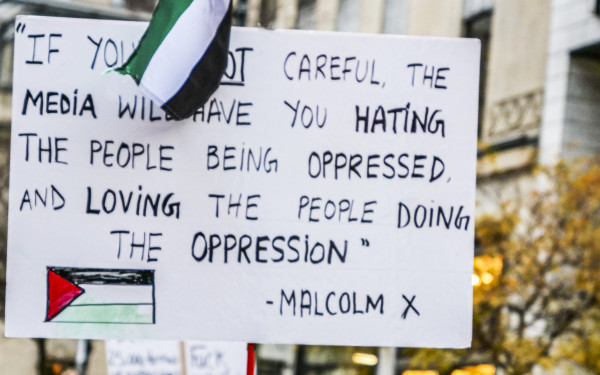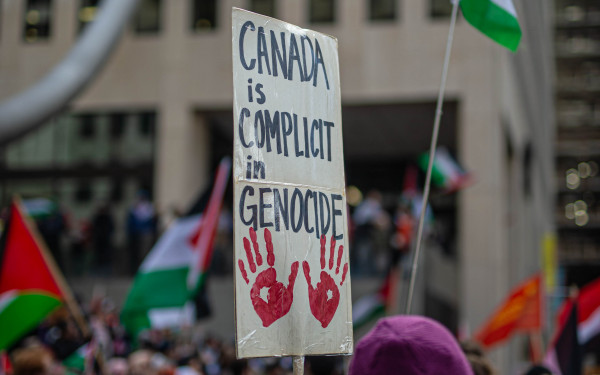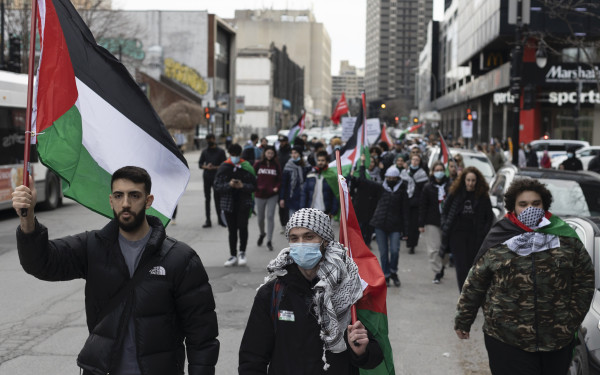Mosque hosts event for Palestinian youth activism
Activists from active pro-Palestinian organizations in Montreal emphasize the importance of youth-led action
On March 7, Palestinian activists Bara Abu Hamed, Danna Noor, and Ali Salman took a seat behind a table draped with the Palestinian flag at Masjid Ahlillbait Mosque to speak for a youth activism event.
The event, organized by the mosque’s youth group, Muslim Youth of Montreal (MYM), was a collaboration between several pro-Palestine organizations in Montreal, including Solidarity for Palestinian Human Rights Concordia (SPHR ConU), Montreal4Palestine, and Thaqalayn Muslim Students’ Association Concordia (TMA).
According to Hassan Ridah, an organizer with the MYM, Muslim youth needs to be more involved in the movement, as he believes Muslims to be the biggest group affected by the war on Gaza.
“The genocide in Palestine is a humanitarian crisis, not a crisis towards one main group,” he said. “But the people being targeted are Muslim Arabs specifically, so we want to see a bigger proportion of Muslim Arabs [in protests]. To put [the event] in a mosque brings people more together and puts them in touch with their community through their origins, especially with the upcoming month of Ramadan.”
Sara, an attendee who asked to stay anonymous for safety reasons, says she was there to educate herself alongside people who share her values, and learn more about community organizing from the youth at the frontlines of the movement in Montreal.
“We can’t keep our eyes closed and do nothing,” she said. “It’s our duty to speak out.”
Each speaker at the event highlighted the importance of the youth’s energy in any movement, as young people are the ones who push forward and remind older generations that there is still hope.
“It has always been the young people who have reminded their parents that there is still the possibility of liberation,” said Noor, who is a member of SPHR ConU. “Youth have always been the catalysts. In every movement they bring the energy, they bring the light.… We’re setting ourselves up for our own futures.”
She believes that it is not only a responsibility, but a privilege, to actively advocate for Palestine, especially when she lives in the “centre of imperialism.” She says she has tools and opportunities Palestinians in Palestine don’t possess, and therefore considers it her duty to “[break] the status quo” upheld by complicit institutions in the West.
As well, Salman, also part of SPHR ConU, brought up the complicity of universities and CEGEPs in funding Israel.
“My main point here is to urge people as much as I can, students especially, to mobilize and to find out what these universities and CEGEPs and institutions that you’re a part of [do], and… use your energy in the right way,” stated Salman.
They then opened the ground for questions, which ranged from asking about how to find reliable sources for donations, and how to reconcile being part of complicit institutions and fight from within, to the relevancy of certain chants in protests. The topic that was brought up the most, however, was the place of religion in the movement.
While most acknowledged the need for Muslims to show a unified front, both Abu Hamed and Noor emphasized the problem with framing the Palestinian cause solely as a religious one.
Noor says this furthers the colonial narrative when activists should be more focused on gathering people standing against a certain ideology rather than working alongside institutions.
“There’s a lot of danger in saying let’s unite religious groups,” she affirmed. “At the end of the day, it’s about Indigenous people’s relationship with imperialism and settler-colonialism.… It shouldn’t be a question of Jews and Christians are joining the Muslims for the Palestinian cause. It should be that the Palestinians are leading the people who are against settler colonialism towards collective liberation.”
Among messages of strength and solidarity, still, a heavy sense of grief remained. Some shared stories about family members in Gaza, and others tackled the impossibility of implementing change from Western countries.
“You funded genocide,” Abu Hamed said with tears in his eyes. “I funded genocide. 151 days is too much. Every day that passes by—I can’t see people live normally. This is not why we came to Canada.”

